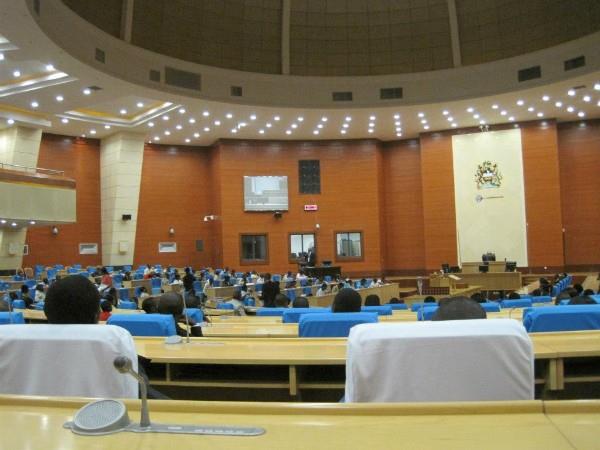
Malawi MPs adopt amended law that removes criminalizing transmission of HIV
LILONGWE-(MaraviPost)- Malawi Members of Parliament (MPs) on Tuesday adopted a law that removes criminalizing transmission of HIV and AIDS, with the view that the provision threatens human rights.
This was after a long-deliberated session that lawmakers had on the HIV (Prevention and Management) Bill, which has excited activists and people living with and affected by HIV, the virus that causes AIDS..
The Bill, which had its origins in a 2008 Law Commission Report, included provisions to make HIV testing and treatment mandatory for select populations on a discriminatory basis, and provisions that would criminalize HIV exposure and transmission, amongst others.
Minister of Health, Atupele Muluzi, urged Members to endorse the amendments when adopting the Bill, emphasizing that criminalizing HIV transmission, has negative public health implications.
Parliament voted to support all the proposed amendments by the HIV Committee and, in addition, voted to delete a contentious provision relating to 'deliberate infection' with HIV. After a second reading, the Bill was passed, subject to these amendments.
After adaptation of the Bill's amendments, activists and people living with, and affected by HIV, celebrated outside Parliament after they protested for months against what they termed 'rights-infringing provisions in the HIV Bill,' that was tabled earlier this year.
The civil society and activists argued that the provisions in the Bill, would violate the Malawi Constitution, be at odds with international best practice, and compromise the country's efforts to advance HIV treatment and prevention.
'It is thanks to women activists who fought to have their voices heard that Parliament recognised that abandoning human rights protections, will only drive vulnerability to the HIV pandemic.
'When the evidence tells us women and girls should be at the forefront of our response to HIV, it is important to understand that criminalization of HIV transmission, would only increase the risk of violence and abuse that Malawian women Nd girls face and strengthen prevailing gendered inequalities in healthcare and family settings; it would also further drive stigma, fear, and discrimination around HIV,' said Sarai-Chisala Tempelhoff of the Women Lawyers Association (WLA Malawi).
Clara Banya of the International Community of Women Living with HIV (ICW) Malawi, added that 'mandatory testing and treatment, and criminalization of HIV transmission and exposure, are counter-productive to reaching the goals of the HIV response in Malawi. We are glad our voices have been heard through the work of organizations like ICW Malawi, the Coalition of Women Living with HIV/AIDS (COWLHA), the Female Sex Workers Association, the Women Farmers Coalition, and others. Human rights have prevailed today in Malawi'.
'We are elated that Parliament has chosen to endorse a law based on evidence and reason, and not on stigma and fear. It is people who are most marginalized in our society, who would suffer most under coercive and criminalizing laws – these are people who need society's support, not punishment,' said Victor Mhango, Executive Director of the Centre for Human Rights Education, Advice and Assistance (CHREAA).
Gift Trapence, Executive Director of the Centre for the Development of People (CEDEP), agreed.
'While we urgently need to embrace key populations to advance human rights and the HIV response in Malawi, the Bill was proposing to create further barriers,' Trapence said.
'The amended version adopted by Parliament does not speak to key populations directly, we must celebrate that at least it hasn't added to the legal barriers as initially proposed, ' he said.
MacDonald Sembereka, Executive Director of the Mango Key Populations Network also chipped in: 'As actors in the sector, we urge for the prompt assent and implementation of the Act, because it is long overdue.'
'We commend and support the incredible advocacy of Malawian civil society organizations and women activists in particular, who refused to be silenced into accepting compromises on punitive laws and policies,' said Michaela Clayton, Director of the AIDS and Rights Alliance for Southern Africa (ARASA).

Legal Disclaimer:
MENAFN provides the
information “as is” without warranty of any kind. We do not accept
any responsibility or liability for the accuracy, content, images,
videos, licenses, completeness, legality, or reliability of the information
contained in this article. If you have any complaints or copyright
issues related to this article, kindly contact the provider above.


















Comments
No comment